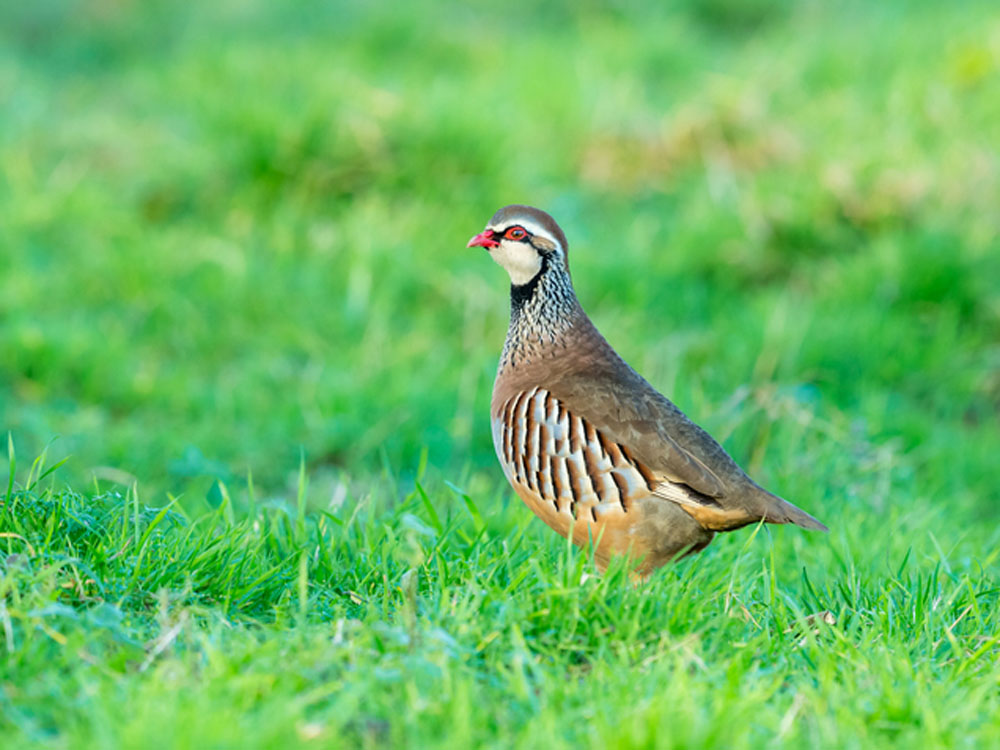Rural property and business update – 9 November
The future of food, farming and the environment in the UK is set for widespread change, but the government seems anxious to keep control by looking to take away the bite from a new environmental watchdog and refusing to bow to pressure from farmers to legislate on the standard of food imports
Andrew Shirley, Head of Rural Research
7 minutes to read
Commodity markets
Little change to our benchmark list of input and output prices this week, but hopefully the country’s second Covid-19 lockdown will put more downward pressure on red diesel values that have already slipped slightly.
Stable wheat prices are being maintained by a wide variety of upwards and downwards forces. Early last week, for example, markets eased following concerns that the increasing impact of Covid-19 would lead to cuts in global demand for grains, particularly from the fuel sector.
But on Thursday, the US Chicago Board of Trade (CBOT) soybean market jumped to $11 per bushel, a four-year high, which pulled world wheat prices higher with it, reports trader Frontier.

Agriculture Bill – Government rejects Lords’ amendments, but makes concessions
The game of parliamentary ping pong continues. As expected, the House of Commons rejected once again the Lords’ amendment to the Agriculture Bill that would have legally bound all food imports to meet the same environmental and welfare standards adhered to by UK farmers.
However, as part of its response the government did make a fairly significant concession via its own amendment.
Free trade deals will not be put to parliament for ratification unless a full report has been produced by the new Trade and Agriculture Commission explaining how the measures in the deal applicable to agricultural products “are consistent with the maintenance of UK levels of statutory protection in relation to: Human, animal or plant life or health; animal welfare and the environment”.
"Clearly this extra level of scrutiny is to be welcomed, but there is no requirement for the government to act on any of the advice given to by the Trade and Agriculture Commission."
The Agriculture Bill will return to the House of Lords on 11 November for more ping pong.
Follow the progress of the agriculture bill through parliament and read the latest amendments
The Environment Bill – Already being watered down on return to parliament?
Another controversial bill that will also have a big impact on farms and estates is back in parliament after a Covid-enforced hiatus. The Environment Bill began its eighth sitting in the Commons last week.
Reading through the transcripts provides an interesting window into the thinking of certain MPs, including Chairman James Gray who seemed somewhat taken aback by an innocuous request from a member of the committee discussing the bill.
“It goes completely against my natural instincts and my absolute principles, but of course, gentlemen may remove their jackets if they wish during our proceedings. There is no need for a new point of order on every occasion. I assure the committee that I will not be taking my jacket off,” harrumphed Mr Gray.
Having settled that important point, a bigger bone of contention was the government’s move to make significant changes to the bill during its seven-month dormancy. One MP even claimed that “the heart has been ripped out of the bill”.
The fears revolve around the perceived weakening of the independence of the new Office for Environmental Protection (OEP) that will replace the EU Commission and Court of Justice when it comes to monitoring and enforcing environmental legislation in England.
“The government is, in effect, reserving itself the right to tell the OEP how to do its job if it doesn’t like the direction of travel on enforcement,” claimed Ruth Chambers of the Green Alliance."
“This is a ‘get out of jail free’ card for it to direct the watchdog away from awkward or inconvenient cases, undermining claims that it will be independent and ignoring the promise to put environmental accountability at the heart of government,” she added.
From a landowners perspective one of the most significant elements of the Environment Bill is the requirement that no new developments will, unless subject to an exemption, be allowed to proceed unless a biodiversity gain plan has been submitted and the planning authority has approved the plan.
Given that Prime Minister Boris Johnson wants to “build, build, build”, this presents significant opportunities for estates and farms to help deliver the biodiversity net gain that must be created to offset any losses caused by developments.
The new mandatory 'biodiversity gain objective' is for the biodiversity attributable to the development to exceed by at least 10% of its pre-development biodiversity value.
Follow the Environment Bill’s progress through parliament
Please contact Tom Heathcote for more information on how you could benefit from biodiversity net gain
Rural property – Country houses enjoy surge in values
Country house prices grew at their strongest rate since the start of 2016 in the third quarter of this year, as buyers’ desire for space and greenery after lockdown continued to drive the market.

In the three months to September values rose by 2% taking annual growth over the year to September to 2.3%, according to the Knight Frank Prime Country House Index.
“A record-breaking run of activity driven by a race for space post-lockdown, has sealed the recovery in the country house market and translated into the strongest price growth seen in more than four years,” explains my colleague Chris Druce.
“Despite a challenging economic outlook, people’s desire to get on with their lives after years of political uncertainty followed by lockdown has seen the property market continue to defy gravity, although there are signs that it is starting to normalise,” adds Chris.
Read the full country house report
Country sports – Government set to licence shoots
Bowing to pressure from Wild Justice, the campaign group set up by TV naturalist Chris Packham, Defra has agreed to implement new licencing conditions for pheasant and partridge shoots within 500 metres of certain protected areas like SSSIs.

Wild Justice has long argued that the release of millions of game birds each year is detrimental to local flora and fauna and had won a judicial review – due to commence this week - into the government’s failure to account for this impact. Defra’s concession means the review will no longer go ahead.
“This is clearly worrying news for the shooting industry and farm and estate owners alike. However, like all things, the devil is in the detail and while this will affect EU-designated sites not all of the UK’s SSSIs are,” points out Alastair Paul of our Rural Asset Management team.
“Those affected should carefully review the protected sites that affect them to understand whether the new licence arrangements will apply to them,” suggests Alastair.
This added complication for game shooting might force some shoots to scale back the size of their shoots and this is reflected in the trends shown in our 2020 Shooting Survey, he reckons.
“Since we did the survey many people have said that they think a return to the traditional family shoot is something they are looking forward to. With Covid-19 highly lightly to also affect the 2021-2022 shooting season this might make others look to take the same decision.”
For more details of what the government’s plans will mean for your shoot please contact Alastair.
Covid-19 jobs support – Furlough extended
Chancellor Rishi Sunak has announced that the Coronavirus Job Retention Scheme, which will pay 80% of salaries up to £2,500 a month, has been extended until 31 March 2021.
Help through the Self-Employment Income Support Scheme (SEISS) will be increased, with the third grant covering November to January calculated at 80% of three months' average trading profits, up to a maximum of £7,500.
Stop Press – US election update
Subject to any recounts and court rulings Joe Biden has won the race to become the next US president.
Pundits are already debating what this means for the UK. Some are speculating that Mr Biden will have a cool relationship with Boris Johnson following comments the Prime Minister made about Barack Obama and the President Elect’s views on Brexit.
However, Joe Biden is nothing if not pragmatic. Harsh words were exchanged between himself and Vice-President Elect Kamala Harris when they were both vying for the Democratic nomination, but that now seems in the past.
Both leaders are committed to advancing the climate change agenda and see eye to eye on a number of other issues, so it is premature to bin the special relationship already.
But it would also be a mistake to think Mr Biden will be a walkover when it comes to trade negotiations. Reaching out to republican voting farmers will be more of a priority to him than appeasing our fears about chlorinated chicken and hormone-treated beef.
Watch this space!